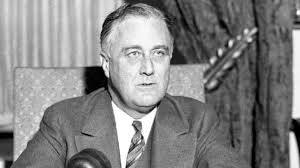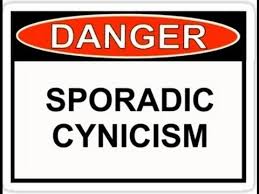Political Cynicism and DOJ’s Appointment of an Internal “Compliance Program” Expert
 I am neither bitter nor cynical but I do wish there was less immaturity in political thinking – Franklin D. Roosevelt.
I am neither bitter nor cynical but I do wish there was less immaturity in political thinking – Franklin D. Roosevelt.
Maybe I am turning cynical in my old age. Maybe I just do not believe that government agencies make decisions for the right reason without sticking a finger in the air to see which way the wind is blowing.
I really do not know what to make of DOJ’s announcement that the criminal division is hiring a “compliance professional” to assist in evaluating the reasons for a violation and the failure of a company’s compliance program.
Supposedly, DOJ needs some assistance in distinguishing between companies that have real compliance programs and then suffer a violation, and companies that have a mere paper compliance program.
As explained by Andrew Weismann, the Chief of the Fraud Division, the compliance counsel will help prosecutors to “differentiate the companies that get it and are trying to implement a good compliance program from the people who have a near-paper program.”
Forgive me, but do DOJ prosecutors really need help in this area?
I just do not buy this explanation. DOJ prosecutors have a long and valuable expertise in this area. To suggest that they need some assistance is just a little too politically cute for me.
As a former AUSA and DOJ official, I am not so sure that the position was really needed. In my mind, career prosecutors at DOJ and in US Attorneys Offices across the country are quite familiar with these issues already and there does not seem to be a real need for such compliance assistance.
DOJ prosecutors have more than enough expertise in this area, and to suggest otherwise is a slap at the professionalism and care that DOJ prosecutors bring to their jobs.
In the absence of some demonstrated need, I think we can put this move into the category of cynical political moves designed to rebut corporate claims that DOJ prosecutors inadequately review and credit corporate compliance programs.
I have consistently opposed the need for a compliance defense since advocates have never explained how it would work in the real world. If Mr. Weismann believes that having a compliance counsel available at DOJ is going to quiet advocates for a compliance defense, he is certainly demonstrating his political “immaturity.”
Putting aside obvious political motivations, the presence of a real corporate compliance expert at the Justice Department could have some positive benefits. It is always good to have access to compliance expertise when examining company compliance programs and imposing corporate compliance requirements.
If the compliance counsel is charged with the responsibility for reviewing and revising the Schedule C requirement routinely imposed on companies that settle criminal cases, such an assignment could be a welcome development. Such revisions could be used as an opportunity to enhance corporate compliance obligations and promote effective compliance solutions.
 Further, a compliance counsel could help to bridge the gap between antitrust and criminal division leaders and bring some consistency to the issue of crediting companies for corporate compliance programs.
Further, a compliance counsel could help to bridge the gap between antitrust and criminal division leaders and bring some consistency to the issue of crediting companies for corporate compliance programs.
Finally, a compliance counsel could be assigned to an even more important task — further revision of the US Sentencing Guidelines to update and incorporate compliance developments into a more relevant set of standards for an effective ethics and compliance program.
















Michael, I always find your perspective refreshing.
Michael, I always find your perspective refreshing.